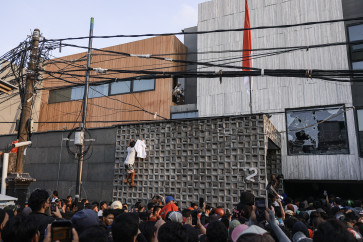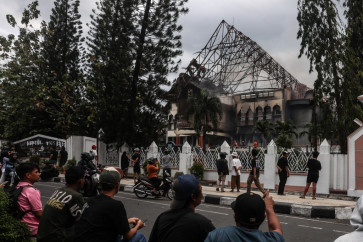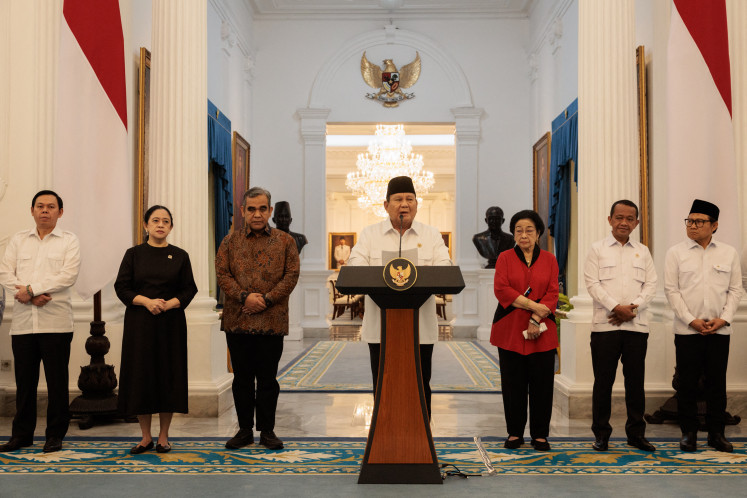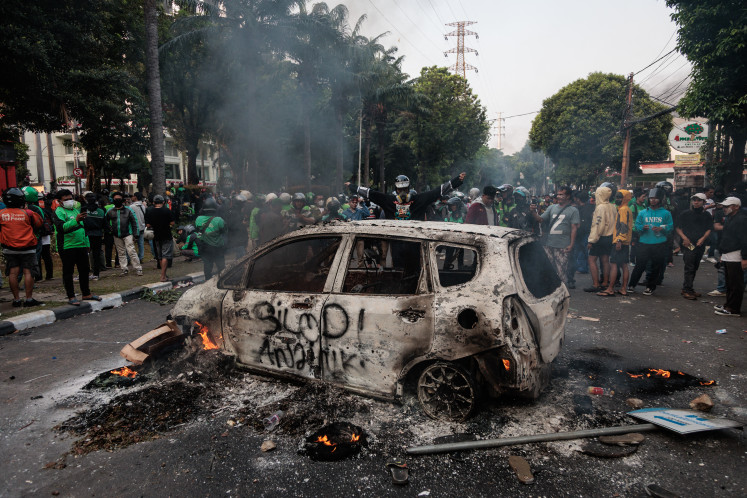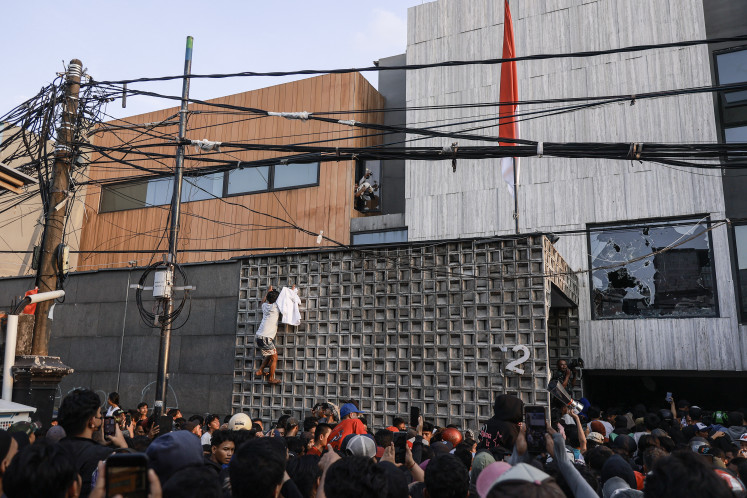Popular Reads
Top Results
Can't find what you're looking for?
View all search resultsPopular Reads
Top Results
Can't find what you're looking for?
View all search resultsPreparations underway for gas-rich Masela block
Preparations for the development of the gas-rich Masela block are underway as the government hopes to start commercial operations in 2023, sooner than originally expected
Change text size
Gift Premium Articles
to Anyone
P
reparations for the development of the gas-rich Masela block are underway as the government hopes to start commercial operations in 2023, sooner than originally expected.
The Energy and Mineral Resources Ministry’s deputy minister, Arcandra Tahar, said the government expected Japan’s Inpex Corp., which holds a 65 percent stake in the block, to complete its pre-front end engineering design (pre-FEED) by the end of this year after long-drawn negotiations put the project on hold.
By the time the pre-FEED is complete, Japan’s top oil and gas developer Inpex and its partner Shell, which holds a 35 percent stake in the block, will have decided on the capacity of the onshore liquefied natural gas (LNG) plant and buyers of pipe gas.
“I have to clarify once again that the negotiations have been completed, and it seems that we have come to an understanding,” Arcandra said. “Now, when will they start? We hope as soon as possible. However, the ball is now in their court, so it depends on them.”
Inpex and Shell were previously put in the spotlight after President Joko “Jokowi” Widodo decided last March that the project must be developed according to an onshore scheme.
The new scheme will replace the initial offshore scheme, which projected production in the gas field to start in 2024 and commercial operation to begin in 2026, two years shy of their contract expiration.
The president said both the regional and national economy would reap more benefits through an onshore scheme, which also drives the construction of petrochemical and fertilizer plants, on the promise of high absorption of the local workforce.
He promised an additional seven years to compensate for lost time because of the changing development scheme and strongly considered Inpex’s request for a cost recovery worth US$1.2 billion following an audit. His administration then demanded that the companies revise their plan of development (POD) once again before the end of last year.
The original POD for an offshore scheme was submitted by Inpex and Shell in 2010, but the discovery of more extensive resources led the contractors to submit a revised POD last year to adjust the floating LNG plant capacity to 7.5 million tons per year (mtpa), up from 2.5 million tons.
Since then, the government has offered the companies two options on the LNG plant capacity, namely 7.5 mtpa with 474 million standard cubic feet of gas per day (mmscfd) or 9.5 mtpa with 160 mmscfd. The pipe gas will be sold to local petrochemical companies.
Located in the eastern province of Maluku, the gas-rich Masela block is estimated to produce 1,200 mmscfd and 24,000 barrels of condensate each day for 24 years.
The provincial administration has been gearing up to equip the local people with the skills needed to enable them to operate the large gas block later.
Maluku Planning and Development Agency (Bappeda) head Antonius Sihaloho said the province planned to send 30 locals to study geology at Padjajaran University in Bandung, West Java, every year.
“In order to prepare future human resources, we are planning to establish the Ambon Institute of Technology,” he added.
Furthermore, the province had allocated Rp 25 billion worth of scholarships annually to fund 20 locals to pursue their post-graduate degree in geology.
Inpex senior communication and relations manager Usman Slamet remained tight-lipped about how it would meet the government’s demand on the pre-FEED completion by the end of this year. However, he said similar to the government, Inpex also expected to commence the project as soon as possible.
“The project is a large one that needs a large volume of investment for a long period of time. This means that it needs the support of all stakeholders. It also needs the hard work of all stakeholders,” he told The Jakarta Post.
Institute for Essential Services Reform (IESR) executive director Fabby Tumiwa remained sceptical of the on-schedule production, saying that the Masela block would very likely start operation after 2026.



